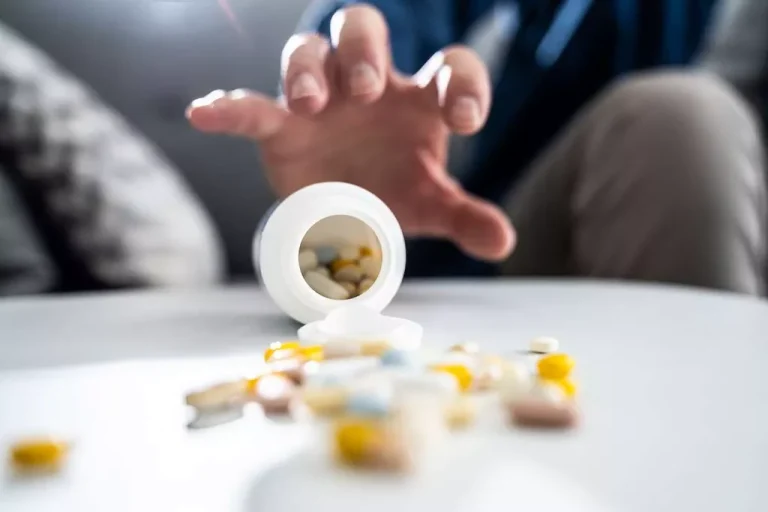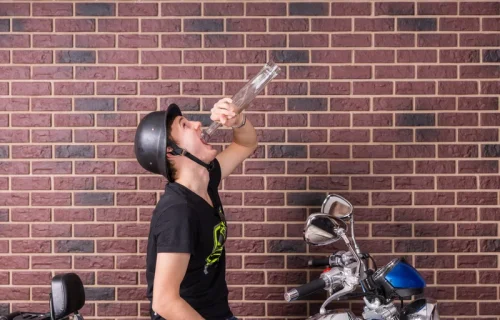
While anger can underlie aggression, you can be angry and not aggressive or aggressive without being angry. Alcohol is known for its ability to amplify emotional expression and inhibition. While it may seem like anger is the most common emotion caused by alcohol, it may not be that straightforward. Groups like Al-Anon or Al-Teen are available to help support people who have been affected by a loved one’s alcoholism.

Dopamine in AUD And Aggression

While some individuals may indeed experience heightened anger under the influence of alcohol, others may encounter a range of emotions, including happiness, sadness, or even euphoria. This aggressive behavior may result in other issues, such as verbal abuse. If drinking causes a blackout, you may not even remember being aggressive unless someone reminds you about it. By perpetuating such behavior, people can end up damaging meaningful relationships — yet another effect of alcohol-based aggression. Many people may naturally become angry or upset when drinking, but it’s not necessarily their fault. Sometimes, people with alcohol use disorders have an unhealthy relationship with alcohol due to specific genetics.

Brain chemistry, alcohol, and rage
Perhaps our friends play it off as funny, or maybe they downplay it due to their own insecurities — whatever the reason is, if our environment makes our “inner Timmy” feel welcome, he’s more likely to show up. We conducted Time Line Follow-Back interviews (Sobell & Sobell, 1992) and calculated percent days abstinent (PDA) and drinks per drinking day (DDD). For subsequent assessments, the interview spanned the time starting with the alcoholism and anger end of the previous interview and ending with the day before the current interview. PDA (arc sine transformed) and DDD (logarithmic transformed) measures were calculated for the pretreatment (six month) period, the treatment period and the six posttreatment month periods. By enhancing assertiveness and interpersonal effectiveness, individuals can cultivate healthier relationships and reduce reliance on alcohol as a coping mechanism.
- This suggested that both the women and men can be equally aggressive and alcohol does not seem to play a prominent role in the gender biases in aggression.
- These medicines can help reduce the negative side effects of detoxification and withdrawal.
- Breathing exercises, journaling, and other distress tolerance skills can help you calm down long enough to be able to express anger in a more effective manner.
- If you are close to someone who experiences alcohol-induced anger, it’s important to get help and support.
Navigating the non-linear treatment journey

By assessing the individual’s specific needs, circumstances, and underlying triggers for alcohol use and anger expression, treatment can be customized to address these factors effectively. While verbal outbursts can be distressing, they may not necessarily escalate to physical violence. However, it’s crucial to remain vigilant and attentive to signs of escalating aggression. In assessing the level of risk, it’s essential to differentiate between verbal expressions of anger and potential physical aggression. The relationship between alcohol and aggression is complex and multifaceted, influenced by individual differences, situational factors, and alcohol dosage. While anger is an emotional state characterized by displeasure or irritation, aggression involves behavior intended to harm or intimidate others.
Water and non-alcoholic beverages can help dilute alcohol intake and promote clearer thinking. It’s crucial to recognize that the emotional impact of alcohol varies significantly from person to person and can be influenced by various factors such as individual predispositions, external stressors, and social contexts. Furthermore, compromised decision-making abilities and weakened impulse control can exacerbate aggressive behaviors, amplifying the expression of anger in alcohol-influenced situations. The frontal lobe’s impairment under the influence of alcohol can result in diminished emotional regulation, making individuals more prone to experiencing heightened anger. Alcohol can have a significant impact on the functions of the brain as it acts as a depressor inhibiting the emotions. Let’s explore the impact of drinking alcohol on various parts of the brain.
- Contrary to this, a cross-sectional analysis of data from 83 countries that controlled for several possible covariates reported that countries with riskier drinking patterns did not have higher homicide rates compared to countries with less risky drinking patterns.
- Yet, when these suppressed emotions resurface, they often manifest as different types of anger issues.
- Sometimes, drinking alcohol can cause people to become an “angry drunk”.
- The limbic system is responsible for our reactions to perceived threats.
- Specifically, they exhibited a reduced capacity to detect sadness and fear and a reduced tendency towards seeing happiness.
Those who are dependent on alcohol should participate in alcohol addiction treatment to break the cycle. Remember, quitting a substance cold turkey can lead to health issues, so it’s best to enlist professional help. Researchers have studied the connection between anger and aggression for years. However, it’s about more than getting easily upset or having a short fuse when you drink alcohol. The outcomes of alcohol and anger can be hazardous, causing traumatizing situations for the inebriated person and the people around them.
What Is Dry Drunk Syndrome?

Mixed models accommodated for the fact that repeated measures from each client were correlated and accommodated for missing data with maximum likelihood estimation. The first two authors, experienced in AM and AAF treatment protocols, supervised https://ecosoberhouse.com/ therapists one hour per week in each condition throughout interventions. During supervision, each active case was discussed individually with regard to adherence to the manualized treatment protocol and the specific content of the session.
2 Attendance and Treatment Satisfaction
Disagreements regarding inclusion in the study were resolved through discussion with a third author (FHK) until a consensus was reached. The reference lists of all included studies were also hand-searched for other relevant articles. If you or a loved one is struggling with alcoholism, contact FHE Health today and get on the road to recovery. The existence of an angry “crazy drunk person” is often featured in TV shows and movies because of the rising drama and action they bring to an entertaining storyline. In the study, nearly 500 participants completed a questionnaire about their inclination to consider future outcomes. Afterward, they either drank an alcoholic beverage (orange juice mixed with alcohol) or a placebo (the same concoction but with minimal alcohol).
- Post Acute Withdrawal (or PAWS) is a very common set of symptoms that occur after you stop drinking or significantly reduce your alcohol consumption.
- Many people enjoy alcoholic drinks as a way of relaxing, sometimes to reduce the tension of socializing or to quiet an overactive mind.
- It may feel like you’re confronting that anger once intoxicated, but because alcohol also impairs memory, you’re never fully able to process that anger.
- The relationship of state/trait anger with treatment outcome among alcohol users was assessed through percentage score, mean and standard deviation.
